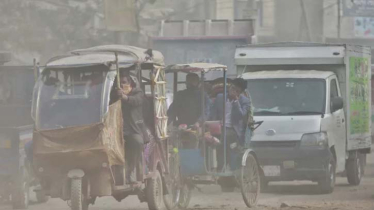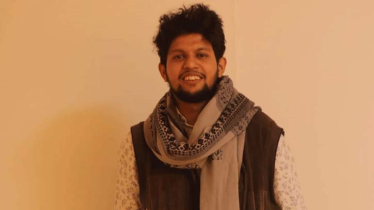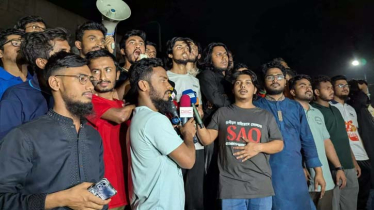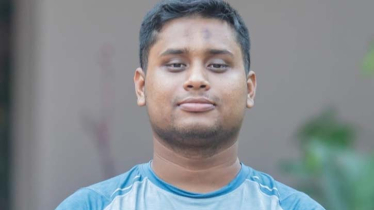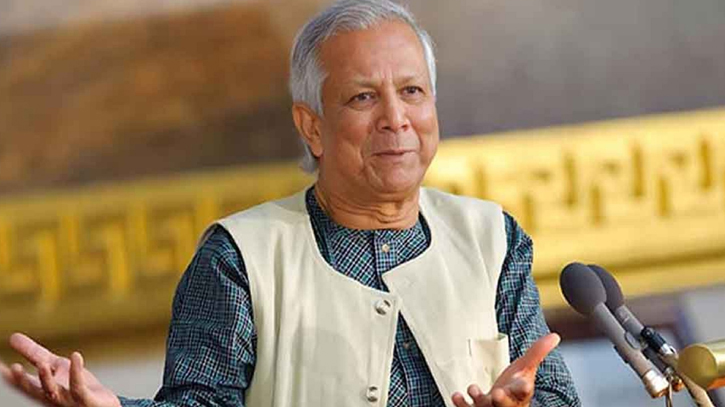
Chief Adviser Dr Muhammad Yunus. Photo : Collected
In a recent interview with Financial Times, Chief Adviser Dr Muhammad Yunus accused the political party of ousted prime minister Sheikh Hasina of exhibiting "all the characteristics of fascism", saying it has "no place" for now in the country's politics.
Yunus's comments make clear the 84-year-old Nobel Peace Prize laureate favours taking a hard line on the former prime minister's Awami League, Bangladesh's oldest and biggest political party, reports the Financial Times.
Yunus also said his interim government would not immediately seek the extradition of Sheikh Hasina from India, an approach that may avoid for the moment fuelling diplomatic tensions between Bangladesh and its giant neighbour.
"In the short run, definitely she has no place — the Awami League doesn't have a place — in Bangladesh," he said.
"They controlled the people, they controlled the [political] machinery, they controlled the institutions to enhance their interest," he added. "No fascist party should be in existence in a democratic system."
Political rivals and human rights groups have accused the Awami League of rigging recent elections, carrying out extrajudicial killings, and capturing state institutions during Sheikh Hasina's more than 15-year rule.
Since her flight, Bangladeshis have been debating whether the party should be temporarily suspended from politics, required to reform, or banned entirely.
Yunus speculated that the Awami League might disintegrate, but stressed that its fate would not be decided by his interim administration as it was "not a political government".
Any decision on whether the League could participate in a future election would be decided by a "consensus" of political parties themselves, he said. "They have to decide their political space."
Hasina's whereabouts in India are unclear. Khalid Mahmud Chowdhury, a former MP and organising secretary for the Awami League, told the FT the party was "ready at any time to join the election".
A former economics professor and self-styled "banker to the poor", Yunus won the Nobel Peace Prize in 2006 for his role in founding pioneering microlender Grameen Bank. He had previously been targeted by Sheikh Hasina in what her critics described as a vendetta.
His interim cabinet, which includes two student leaders, is now laying the groundwork for new elections and has formed 10 commissions tasked with reforming institutions including the police, judiciary, and public administration.
Yunus, who said he has no intention of joining politics or forming a political party, would not be drawn on a timeline for the polls. "Our job is to get things settled and get a new reform agenda done," he said. "When the election preparation is done, we will consult with political parties."
The toppling of Sheikh Hasina's regime has strained ties with India, her biggest foreign backer.
Yunus said his government would seek Sheikh Hasina's return, but only after a verdict was reached by a domestic criminal tribunal that this month issued an arrest warrant against her and 45 others.
"She is charged with crimes against humanity . . . when the verdict comes out, we'll try to get her back through the extradition treaty with India," he said. "I don't think we have a case to do that before a verdict is done."
Sheikh Hasina's son Sajeeb Wazed told the FT in August that allegations his mother was responsible for violence against protesters were false and she was ready to face any charges "because she did nothing illegal".
Indian Prime Minister Narendra Modi has voiced concern about the safety of Bangladesh's minority Hindus since Yunus's government took over and many in New Delhi remain hostile to what they allege was a US-backed regime change.
After Sheikh Hasina was overthrown, many Awami League supporters fled into exile or hiding. An unknown number were killed in a wave of retaliation carried out by targets of the former regime, including members of the opposition Bangladesh Nationalist party.
The health ministry has said about 800 people including protesters, bystanders and police were killed in the unrest. However, human rights groups have not confirmed Indian allegations of mass atrocities against Hindus.
Yunus acknowledged "some incidents" of violence against Hindus and a "very small number" of fatalities. But he argued that they were targeted for their Awami League affiliation, not their religion.
"Most of the Hindus [attacked in August] supported the Awami League," he said, adding that critics had "transformed the narrative".
Yunus said the lack of support from New Delhi, to which Bangladesh is bound by power, water and other infrastructure projects as well as shared history, had "hurt" his government. He added that Modi would be "most welcome" to visit.
"We tried to . . . emphasise the fact that we are neighbours, we need each other, we must have the best relationship that any two neighbours should have," he said.
Messenger/Disha





